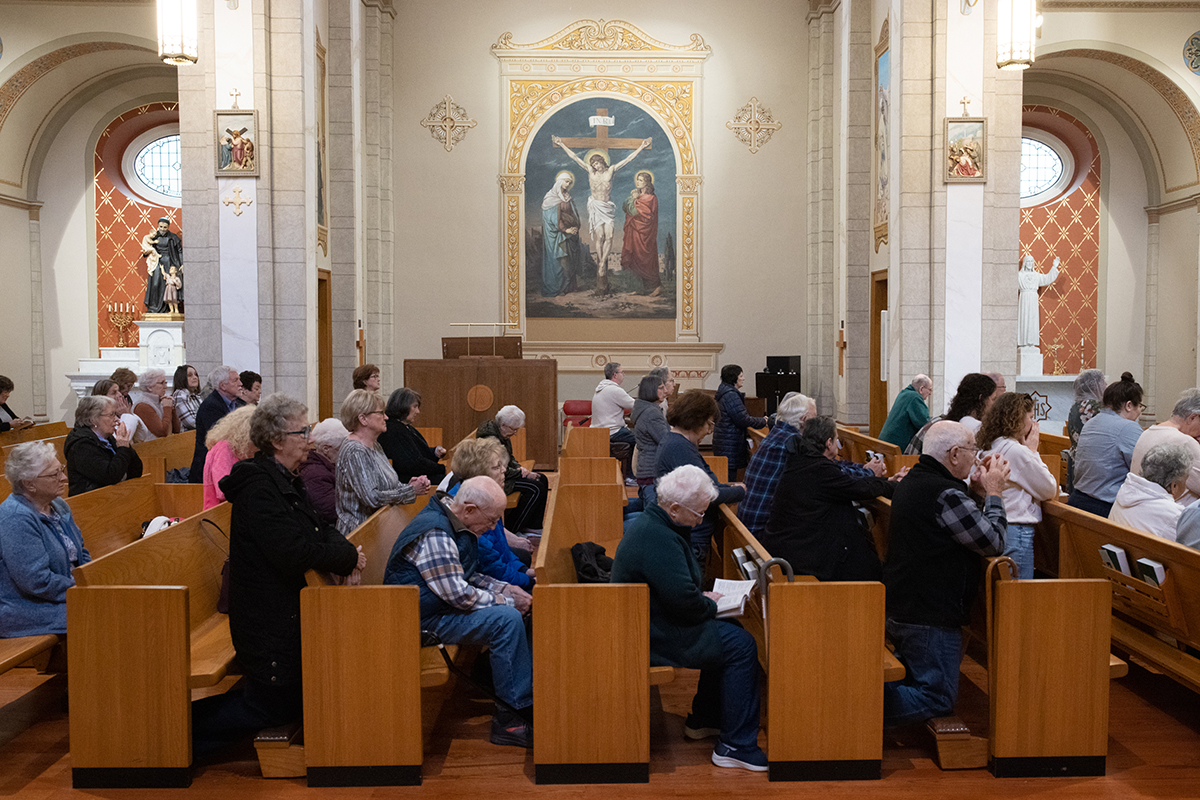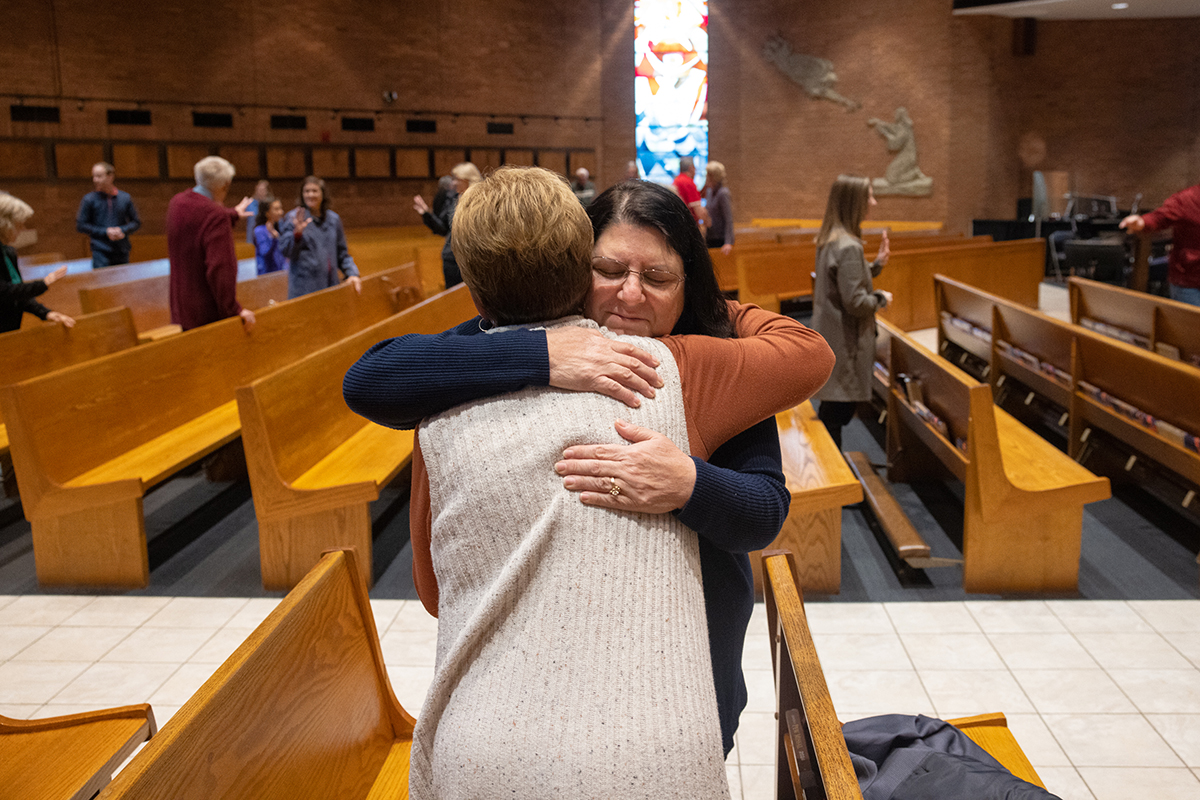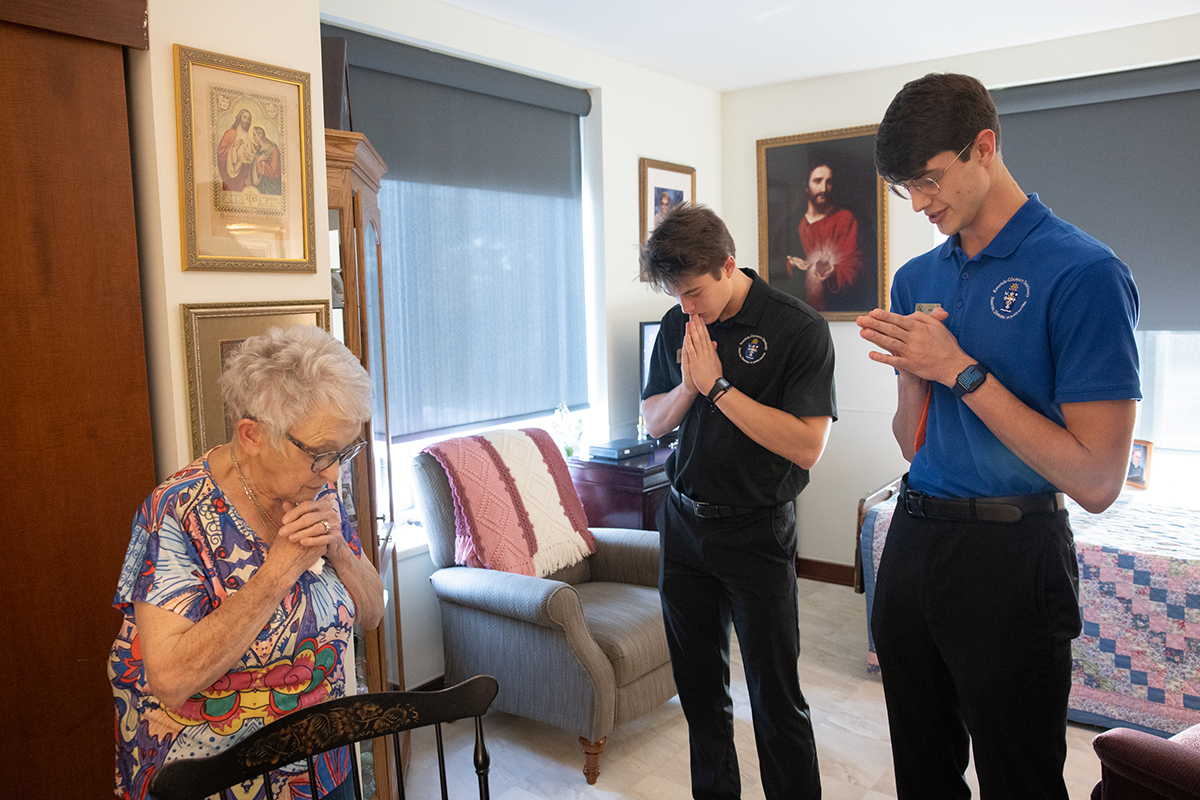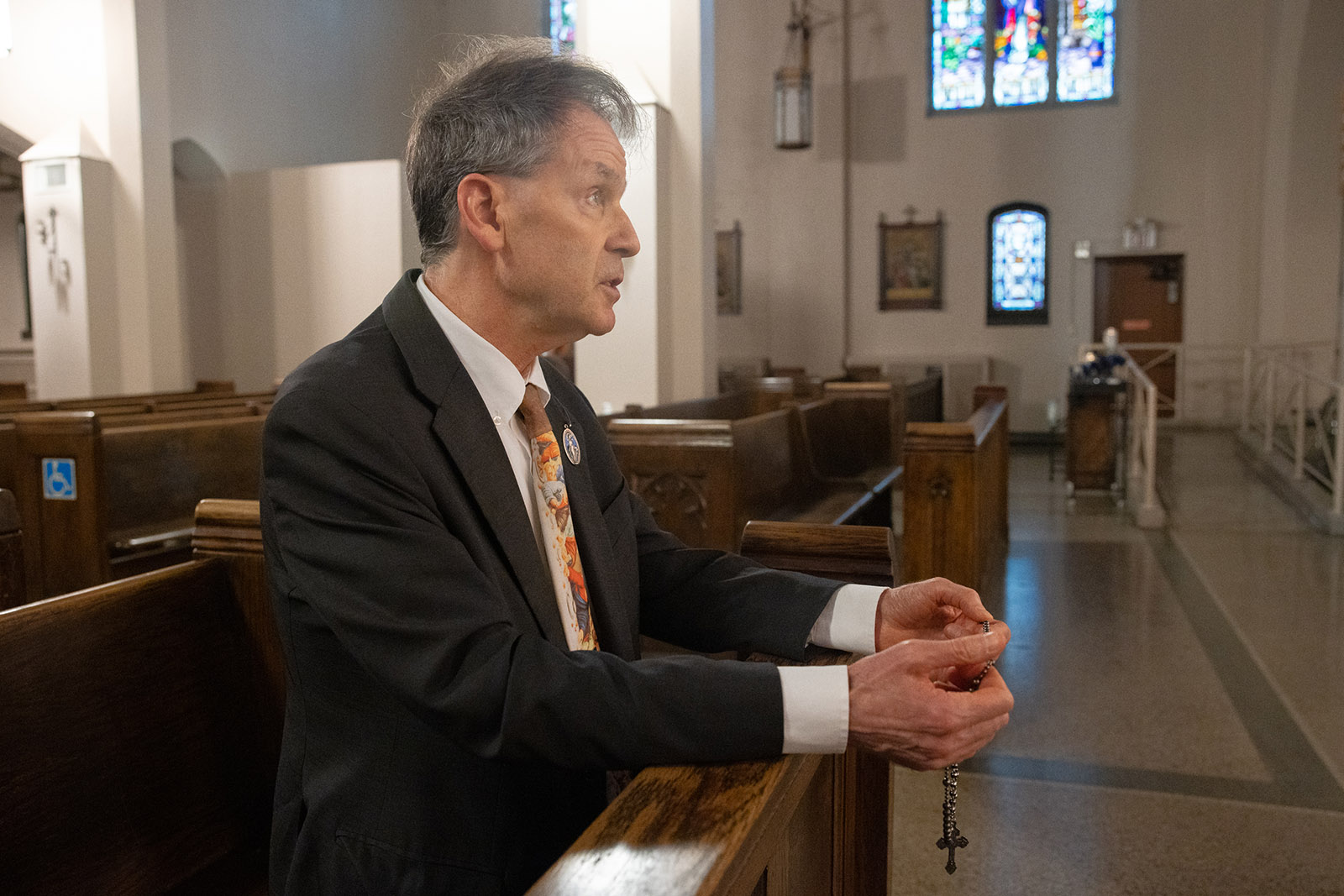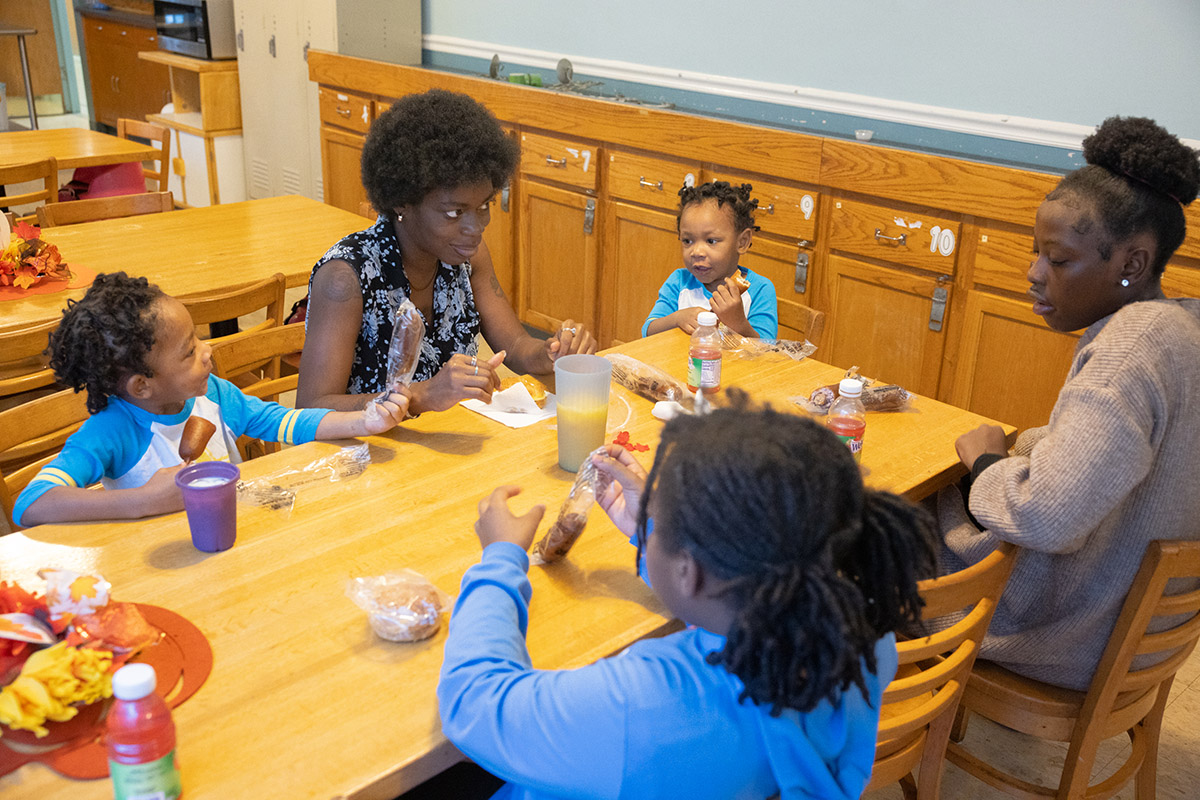From slave to priest
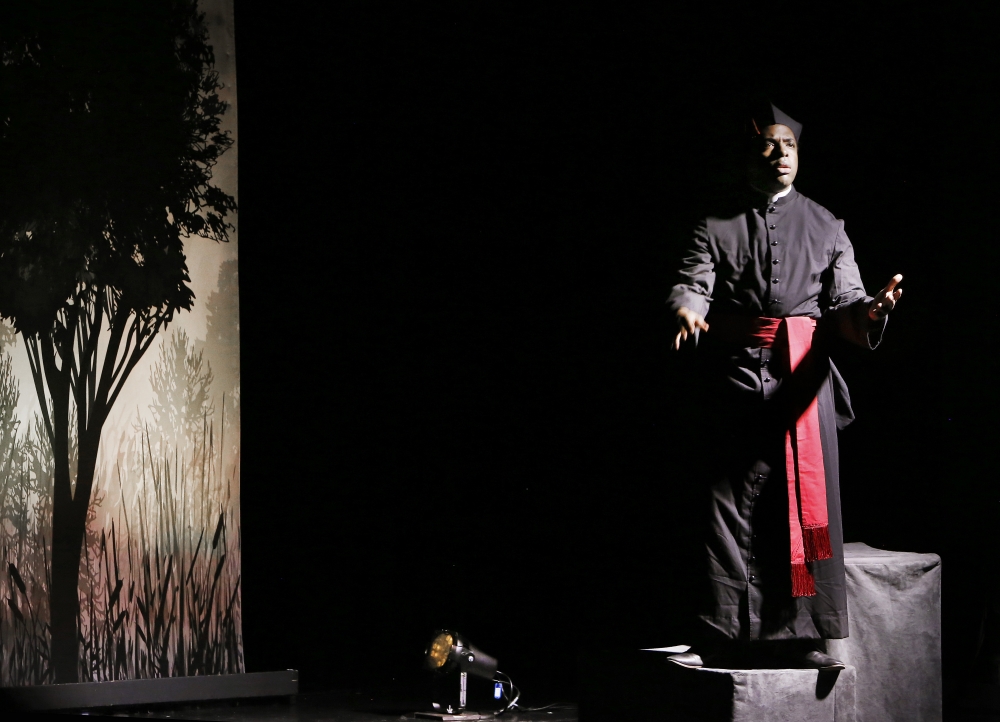
To hear Andrae Goodnight describe it, Father Augustus Tolton was a powerful and transformative figure in U.S. Catholic Church whose positive example remains relevant today.
Goodnight will play the role of Father Tolton — the first American diocesan priest of African descent — in a new one-man drama produced by Saint Luke Productions. Several performances will take place in St. Louis later this month.
The story recalls the priest’s life, from being born into slavery in the small town of Brush Creek, Mo., to crossing over the river to Quincy, Ill., where he eventually answered a calling to the priesthood.
Father Tolton experienced many challenges, but “was able to overcome them with love and patience and grace,” Goodnight said. At a time when segregation of races was the norm, Father Tolton “refused to be held in that box and overflowed beyond borders,” he added. “His heroic example is what is needed today.”
Father Tolton was born in 1854 in Brush Creek, Mo., near Hannibal. It was part of what was then the Diocese of St. Louis, and is now in the Diocese of Jefferson City, Mo. His parents were slaves who lived on adjoining farms owned by Catholic families. Father Tolton was baptized Catholic at St. Peter Church in Brush Creek. His father joined the Union Army when the Civil War broke out. His mother took her three children across the Mississippi River to Quincy, Ill., where she was assisted by those sympathetic toward runaway slaves.
An Irish priest, Father Peter McGirr, recognized the talent of Augustus, who attended Mass when possible. He invited him to attend the parish school taught by the School Sisters of Notre Dame. Franciscan priests and diocesan priests helped tutor him when he expressed an interest in the priesthood. But no seminary or religious order in the country would accept a black candidate at that time. He was admitted in 1880 to the College of the Propagation of the Faith, a mission seminary in Rome, and was ordained there at the Basilica of St. John Lateran in 1886.
To his surprise, he was assigned to his home diocese. He became pastor of St. Joseph Parish in Quincy and later established St. Monica Church in Chicago. He died of a heat stroke in 1897 in Chicago at the age of 43 and is buried in Quincy. His cause for canonization was initiated in 2010.
Saint Luke Productions founder and president Leonardo Defilippis said a priest gave him a book on the life of Father Tolton and recommended that he do a play on his life. The company has produced live dramas and films on the lives of other notable Catholic saints including Faustina, Therese of Lisieux, John Vianney and Maximilian Kolbe.
Defilippis held on to a card about the life of Father Tolton — “I kept looking at it and praying about it,” he said — and realized the Holy Spirit was calling him to do this. He contacted Cardinal Francis George, who had initiated Father Tolton’s cause for canonization in the Archdiocese of Chicago. The cardinal put Defilippis in touch with Bishop Joseph N. Perry, postulator for the cause.
Father Tolton’s story is an inspiration for several reasons, Defilippis said, including the help of priests such as Father McGirr who supported him in his vocation and his perseverance in pursuing the priesthood, when his educational opportunities were limited because of his race.
“He had an incredible faithfulness, an addictive faith in Christ,” he said. “The fruits of that are perseverance, patience, forgiveness, healing and compassion. He is so focused on Christ, and he parallels Christ’s life in so many ways — he’s rejected, even by his own people.”
Defilippis sees those themes as integral to the discussion on racial equity and related issues in today’s culture.
“Hopefully this can be a way to bring about understanding and healing,” he said, referencing current events in the St. Louis region and elsewhere. “With all of the tensions, this could be a catalyst to help with that.”
>> Father Tolton timeline
1854: Augustus Tolton is born on April 1 to two slaves, Martha and Peter Tolton, in Brush Creek, Mo. (then part of the Diocese of St. Louis, now part of the Diocese of Jefferson City, Mo.)
1862: Martha Tolton escapes with her children to Quincy, Ill.
1863: Augustus, age 9, begins working in a tobacco factory
1865: Augustus starts at St. Boniface School; he left a month later after parish and staff were threatened over his presence at the school
1868: Augustus Tolton enrolled at St. Peter School in Quincy
1870: Confirmed at St. Peter Church at age 16 and likely received his First Communion
1872: Graduated from St. Peter School at age 18
1873: Tutoring begins in preparation for the seminary
1878: He enrolls in St. Francis College, now Quincy University and receives special instruction because he was far advanced over the other students.
1880: Departs for Rome on Feb. 15 to enter the seminary at the Collegium Urbanum de Propaganda Fide. Expects to become a missionary priest in Africa.
1886: Ordained at St. John Lateran Basilica in Rome on April 24; he is told he would return as a missionary to his home country of the United States in Quincy. Father Tolton celebrates his first Mass in Quincy at St. Boniface Church on July 18 and becomes pastor of St. Joseph Church.
1889: Father Tolton begins his ministry in Chicago on Dec. 19.
1894: St. Monica Church, the first Catholic Church in Chicago to be built by African-Americans, is dedicated on Jan. 14. Father Tolton becomes the first pastor.
1897: Father Tolton dies at Mercy Hospital in Chicago on July 9. The cause was heart failure, due to excessive heat. He was 43 years old.
2010: Cardinal Francis George of the Archdiocese of Chicago announces that he will pursue the cause of sainthood for Father Tolton. Bishop Joseph N. Perry is appointed diocesan postulator. The Father Tolton Guild and the Historical Commission are established.
2012: The Sacred Congregation for Causes of Saints at the Vatican grants the title “Servant of God” to Father Augustus Tolton and orders that the Archdiocese of Chicago proceed with the Diocesan Inquiry into his life and virtues.
2014: The Archdiocese of Chicago completed the diocesan phase of the investigation into the life and virtues of Father Augustus Tolton. Supporting documents were sent to the Congregation for Causes of Saints at the Vatican.
2016: Catholic Cemeteries for the Diocese of Springfield and the Archdiocese of Chicago, in the presence of Bishop Thomas Paprocki and Bishop Joseph N. Perry, exhume the remains of Father Tolton at St. Peter Cemetery, Quincy. Report of the exhumation is sent to Rome.
‘Tolton: From Slave to Priest’
Sunday, Nov. 26: 2 p.m. performance at All Saints Parish, 7 McMenamy Road in St. Peters (in Parish Center). Admission is a freewill offering; sponsored by All Saints and St. Cletus parishes. For information, contact All Saints at (636) 397-1440 ext. 221 or email asparish@allsaints-stpeters.org; or St. Cletus (636) 946-6327 or cclegg@stcletus.org.
Tuesday, Nov. 28: 7 p.m. performance at Cardinal Ritter College Preparatory High School, 701 North Spring Ave. in north St. Louis. Admission is $10; sponsored by the St. Charles Lwanga Center. For tickets, contact the Lwanga Center at (314) 367-7929 or info@lwangacenter.org.
Wednesday, Nov. 29: 7 p.m. performance at Trinity Catholic High School, 1720 Redman Road in north St. Louis County. Tickets are $5 adults, $10 for families of three or more, and free for youth ages 18 and under; sponsored by the parishes of the North County Deanery. For tickets, contact Connor Grumich at cgrumich@trinitycatholichigh.org or (314) 741-1333.
Friday, Dec. 1: 7 p.m. performance at St. Joseph Parish, 567 St. Joseph Lane in Manchester. Admission is a freewill offering. For more information, call (636) 227-5247 or email info@stjoemanchester.org.
RELATED ARTICLE(S):Inspiring life of Fr. Tolton celebrated this month
To hear Andrae Goodnight describe it, Father Augustus Tolton was a powerful and transformative figure in U.S. Catholic Church whose positive example remains relevant today. Goodnight will play the role … From slave to priest
Subscribe to Read All St. Louis Review Stories
All readers receive 5 stories to read free per month. After that, readers will need to be logged in.
If you are currently receive the St. Louis Review at your home or office, please send your name and address (and subscriber id if you know it) to subscriptions@stlouisreview.com to get your login information.
If you are not currently a subscriber to the St. Louis Review, please contact subscriptions@stlouisreview.com for information on how to subscribe.

